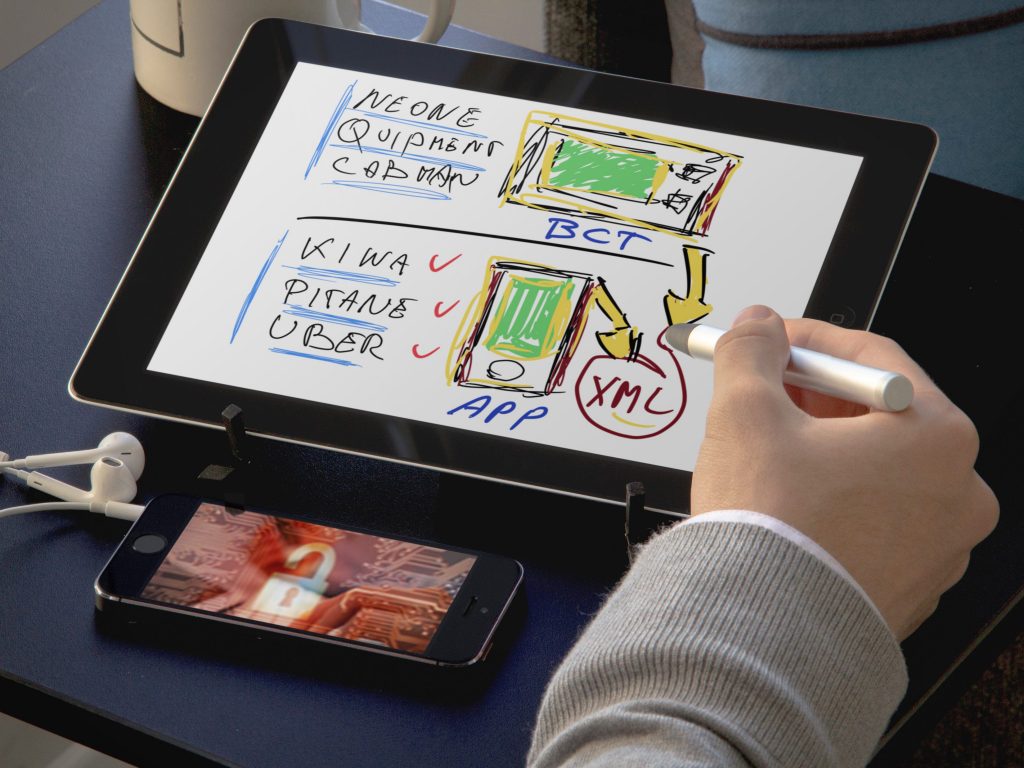Cabman, a leading supplier of taxi on-board computers (BCTs) in the Netherlands, recently launched a made a decision which has significant consequences for the second-hand market for these devices. The company has announced that it will stop (re)installing BCTs for carriers that are not the original owner of the device.
This decision is pushing carriers toward purchasing new mobile data terminals (MDTs), a strategy similar to the phase-out of legacy technology in other industries. By comparison, just as one cannot use modern apps like Netflix on a ten-year-old television, Cabman argues that outdated BCTs no longer meet the modern-day demands of the taxi industry.
The above-mentioned decision currently has no consequences for BCTs already installed in existing vehicles. Carriers who rejuvenate their fleet and decide to convert the BCT will also not be affected by the stop. In addition, the fact that there has been an uncontrolled trade in often defective BCTs in the gray circuit also plays a role in this decision. As a result, we and our service partners are confronted every day with disappointed end users who have bought a pig in a poke. We find this very annoying and it partly forces us to make this choice.
Cabman, part of Euphoria Mobility
This step obviously puts pressure on the second-hand market and raises questions among carriers, especially now that the sector is on the eve of a major technological change with the introduction of the Central Taxi Database (CDT). The implementation of CDT promises more efficient processing of taxi fare data by using advanced technologies. A recent practical test by the Human Environment and Transport Inspectorate (ILT) shows that this new approach represents major steps forward in taxi supervision, with possibly the driver's license as a new standard instead of the BCT card.
Although the requirements within the taxi industry are still unchanged, a network transition is forcing suppliers such as Cabman to reconsider their product offering. The taxi industry is facing a technological transition, driven by external factors that do not directly change operational standards but do force the need for technological adjustments. The core of this change lies in the phasing out of the 2G mobile network, a development that has major implications for the functionality of on-board computers in taxis, which largely depend on this network for data communication.

The technology and organization of the ILT are capable of processing taxi transport data with the CDT. The continued efforts of the ILT and the involvement of market parties are crucial for the success of this initiative, which aims to guarantee the quality and safety of Dutch taxi transport.
Royal Dutch Transport (KNV), the trade association for professional transport, is central to informing and supporting its members amid the technological transition within the taxi industry. In response to the concerns of its members, KNV, after consultation with Cabman, has compiled a series of answers to frequently asked questions about the future of BCTs in light of these network changes.
The dependence on the 2G network for existing BCTs poses an additional problem. With announcements from telecom providers such as KPN en Vodafone, about the phasing out of the 2G network, carriers that rely on this technology face additional challenges. Although the BCTs continue to technically function without a data connection, the lack of 2G support significantly limits functionality. This highlights the need for carriers to transition to newer technologies that are compatible with modern networks.
new legislation
The situation is further complicated by the postponement of the upcoming new legislation regarding the use of the CDT, which is not expected to come into force until January 1, 2025. This new regulation paves the way for the introduction of cheaper alternatives for BCTs, such as the use of phones and tablets which could further ease the pressure on carriers to invest in new technologies.
Despite the challenges, Cabman is offering a trade-in promotion for customers who want to switch to the new Cabman MDT. This gesture appears to be an attempt to ease the transition to modern systems while addressing carrier concerns. However, the decision to limit support to BCTs within its own fleet that are five years or older highlights the complexity of activating and repurposing deployed devices in a rapidly evolving technological environment.
Either way, this information highlights the need for carriers to proactively plan for the future. It also underlines the importance of clear communication and support from trade associations such as KNV and suppliers such as Cabman. The collaboration between these parties is essential to guide the sector smoothly through this technological shift, with the focus on minimizing disruptions and ensuring the continuity of taxi services.





